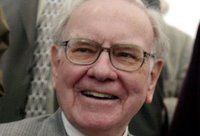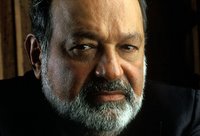 They're not just for the pathologically reclusive or tragically stranded. Private islands, with their bare beaches, 360-degree views and delicious solitude, are coveted by billionaires and celebrities alike.
They're not just for the pathologically reclusive or tragically stranded. Private islands, with their bare beaches, 360-degree views and delicious solitude, are coveted by billionaires and celebrities alike.
"If you win the lottery, you buy a private island," says Cheyenne Morrison, broker for Coldwell Banker Morrison's Private Islands in Port Douglas, Australia. "Or if you become a tech mogul, that's what you do. You think, 'I'll buy a yacht. I'll buy a private island.'"
The main incentive to owning an entire island is pretty obvious: keyword "private." A huge margin of water serves as a far more effective barrier to the outside world than a stone wall, automatic gate or towering privet hedge. There are no noisy neighbors; no photographers may set foot on your beach without permission.
There is also an element of fantasy to having your own private island--especially given the prices. Though pocket-sized properties without beaches, in dubious or chilly parts of the world, can be had for as little as $200,000, private islands are increasingly rare.
"Islands are very scarce, the good ones," says Farhad Vladi of international brokerage Vladi Private Islands in Hamburg, Germany.
Many have been set aside as nature preserves, sold off in parcels, developed into multiple resorts, or will simply be bought and held for decades. In some countries, such as the Philippines, foreigners are not allowed to buy private islands. So, it's no wonder prices for the biggest can be sky-high.
This year, for example, Forbes.com's 2006 list of the Most Expensive Private Islands tops out at nearly $40 million, the price for
Isla de sa Ferradura, a Spanish property occupied by a luxurious resort villa. The ninth-most expensive private island on the market, a stunning example off the coast of St. Thomas known as Thatch Cay, clocks in at a tough-to-reach $24 million. And though we scoured real estate listings for the properties on our list, there are likely several more that are being sold very, very quietly at comparable prices--or higher.
The list of people who have owned private islands is long and illustrious.
Mel Gibson paid $15 million for his cliff-ringed Fijian retreat. Richard Branson wisely bought Necker Island decades ago, when it was still possible to purchase such properties in the British Virgin Islands. Marlon Brando lived for years in rustic fashion on Tetiaroa in French Polynesia (the island is currently being turned into an eco-resort). Thought the world's richest person, Microsoft (nasdaq: MSFT - news - people ) Chairman and Chief Executive Bill Gates, is not known to own his own island, he reportedly toured Grand Bogue Caye, the largest available private island in Belize. Priced at $25 million, it has 314 acres and thousands of feet of pristine beach.
So, why don't more billionaires and celebrities own their own islands? For one thing, there is a finite supply of them. For another, they are not to everyone's tastes, no matter how appealing they might seem in the abstract. The best islands have beaches to lounge on, clear waters to swim and fish in and terraces to dine on, but unless your property happens to be close to civilization, you can rule out shopping, dining out and visiting museums. In fact, access can be a real problem and some private islands are not large enough to land a Gulfstream, or have a harbor deep enough to handle anything larger than a small boat. Then, of course, there can be the hassle of ensuring there are always enough supplies, not to mention electricity and running water. Most islands aren't on a power grid and few are located near a Home Depot (nyse:
HD - news - people ) or a Wal-Mart (nyse: WMT - news - people ). Last, but not the least, islands can be prone to salt damage, insects and, more important, natural disasters like tidal waves and hurricanes. After a while, even a billionaire may get fed up of having to constantly rebuild at the end of every hurricane season.
Still, advances in technology have made island living cheaper, more comfortable and less cut-off. You will still pay more to build a house on an island, since materials need to come in by boat, and for traveling you are generally at the mercy of the sea. But solar panels and wind power generators have become more affordable in recent years; so has desalination equipment.
"Communication was always the biggest drawback of an island," Morrison says. "Up until five or ten years ago, no matter how much money you had, you couldn't have telephone service; you had to rely on radio."
Today, even remote islands have cellular phone service, and if yours doesn't, you can get telephone, Internet and television service via satellite.
Though "private island" might conjure up images of tropical paradises lush with palms, such properties can be had around the world. You can buy part of a remote Asian archipelago that can only be reached by plane, then car, then boat; or
a vintage estate off the coast of Connecticut--close enough to commute to Manhattan each day.
One thing holds true around the globe, however: Before you consider buying an island retreat, you must rent one, Vladi advises.
"Check out the flora and fauna," he says. "See how you can get along in an anti-social environment. See if you like the local culture--you have to buy your groceries, get your boat repaired."
Some locales may be more welcoming than others. For example, a $27.5 million property known as Sultan's Island originally appeared on our list, but was subsequently withdrawn because of local anti-foreign sentiment. "The media are creating a stir about foreigners buying it and so the owner has taken it off the market," says Morrison, the listing broker.
Consult a professional broker, and be sure to ask the right questions about any island that looks appealing in pictures.
"The further away the island, the more remote the island, the less salable the island is," Vladi says. "No photo shows you that. You don't see mosquitoes in photos. I can show you the most beautiful islands that have sand flies."
If the prices on our list are too steep, don't despair. Though the big ones are certainly desirable, often because of development potential, the best islands for private retreats are often smaller and far cheaper.
"An island that is five, ten, or 20 acres, that's human-sized," Morrison says. "Something you can walk around in an hour or two hours."
And, of course, you still won't bump into any neighbors.
 Age : 50
Age : 50







